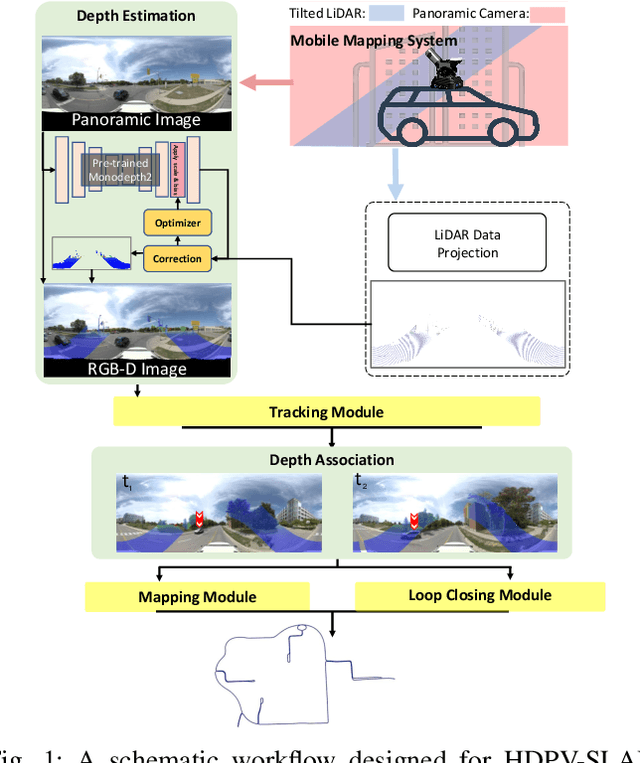Zahra Arjmandi
HDPV-SLAM: Hybrid Depth-augmented Panoramic Visual SLAM for Mobile Mapping System with Tilted LiDAR and Panoramic Visual Camera
Jan 27, 2023



Abstract:This paper proposes a novel visual simultaneous localization and mapping (SLAM), called Hybrid Depth-augmented Panoramic Visual SLAM (HDPV-SLAM), generating accurate and metrically scaled vehicle trajectories using a panoramic camera and a titled multi-beam LiDAR scanner. RGB-D SLAM served as the design foundation for HDPV-SLAM, adding depth information to visual features. It seeks to overcome the two problems that limit the performance of RGB-D SLAM systems. The first barrier is the sparseness of LiDAR depth, which makes it challenging to connect it with visual features extracted from the RGB image. We address this issue by proposing a depth estimation module for iteratively densifying sparse LiDAR depth based on deep learning (DL). The second issue relates to the challenges in the depth association caused by a significant deficiency of horizontal overlapping coverage between the panoramic camera and the tilted LiDAR sensor. To overcome this difficulty, we present a hybrid depth association module that optimally combines depth information estimated by two independent procedures, feature triangulation and depth estimation. This hybrid depth association module intends to maximize the use of more accurate depth information between the triangulated depth with visual features tracked and the DL-based corrected depth during a phase of feature tracking. We assessed HDPV-SLAM's performance using the 18.95 km-long York University and Teledyne Optech (YUTO) MMS dataset. Experimental results demonstrate that the proposed two modules significantly contribute to HDPV-SLAM's performance, which outperforms the state-of-the-art (SOTA) SLAM systems.
 Add to Chrome
Add to Chrome Add to Firefox
Add to Firefox Add to Edge
Add to Edge